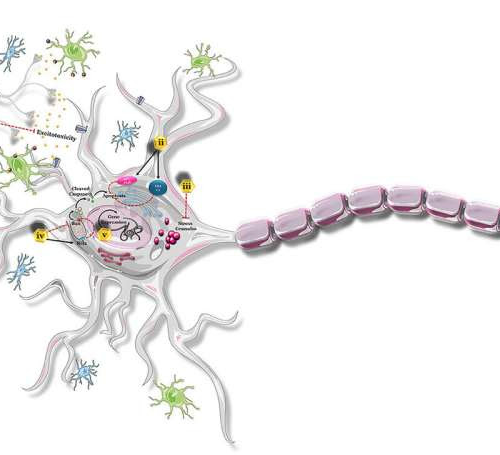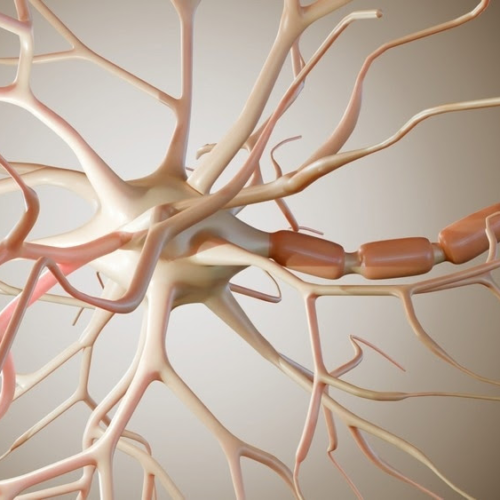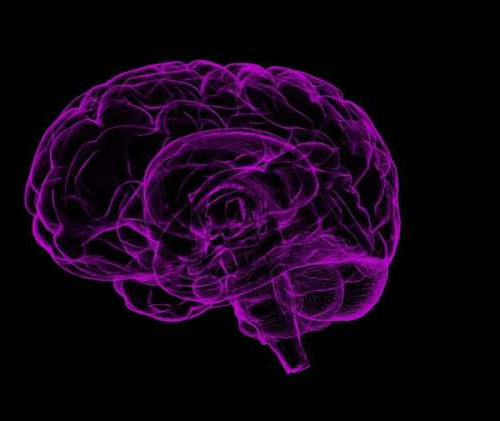Global comparison between structural and functional connectivities. Credit: Nature Communications (2024). DOI: 10.1038/s41467-024-51395-6 Different brain regions are connected by—and interact through—networks of neurons. But the extent to which neuronal wiring drives shared function between these different regions is not well understood. Is this structure-function relationship the same throughout the brain? The same across functions? Yale researchers have...
Category: <span>Neuroscience</span>
Multiple sclerosis: early warnings in the immune system
LMU researchers demonstrate that certain immune cells already play an important role in the early stages of multiple sclerosis. Multiple sclerosis (MS) is a chronic inflammatory disease in which the immune system attacks the central nervous system. This impairs the transmission of signals between the brain and body and can lead to deficits in vision,...
Liver X receptor beta: A new frontier in treating depression and anxiety
In a Bench to Bedside review published in the journal Brain Medicine, researchers Dr. Xiaoyu Song and Professor Jan-Åke Gustafsson from the University of Houston and Karolinska Institutet (Sweden) shed light on the therapeutic potential of liver X receptor beta (LXRβ) in treating depression and anxiety. This comprehensive analysis marks a significant step forward in understanding the molecular...
Researchers identify genetic mutations for rare disorder causing cognitive decline
September 24, 2024 by Mayo Clinic The countries where the disease was reported by 2018 are shown in blue. The countries where the disease was reported between 2018 and 2023 are shown in yellow. The newly reported countries are shown in red. Credit: Neurology Genetics (2024). DOI: 10.1212/NXG.0000000000200187A rare cause of hereditary cognitive decline known...
Biomarkers for psychiatric illness? Study gets researchers one step closer
September 25, 2024 by Mallory Locklear, Yale University A reproducible set of CAPs in the whole-brain rs-fMRI involve recurring mixed representations of canonical resting-state networks. Credit: PLOS Biology (2024). DOI: 10.1371/journal.pbio.3002808A key challenge in the effort to link brain activity with behavior is that brain activity, measured by functional magnetic resonance imaging (fMRI), for instance,...
60-second heartbeat recordings offer window into autonomic health after severe brain trauma
News Release 24-Sep-2024 New study validates reliability of ultra-short heart rate variability measures, paving way for faster, easier tracking of recovery in traumatic brain injury survivors Peer-Reviewed PublicationGenomic Press For the over 1 million Americans who survive severe traumatic brain injuries each year, the road to recovery is often long and challenging. Disruption of the...
Common brain network detected among veterans with traumatic brain injury could protect against PTSD
News Release 24-Sep-2024 A Brigham led study suggests using neurostimulation therapies on a specific brain circuit could treat post traumatic stress disorder (PTSD) Peer-Reviewed PublicationBrigham and Women’s Hospital A Brigham led study suggests using neurostimulation therapies on a specific brain circuit could treat post traumatic stress disorder (PTSD) KEY TAKEAWAYS Brigham researchers analyzed 193 patients...
Super-activation of vitamin A signaling system protects against motor neuron disease, other conditions
September 20, 2024 by University of Aberdeen Possible neuroprotective effects of ellorarxine. Credit: Frontiers in Neuroscience (2024). DOI: 10.3389/fnins.2024.1422294Drugs that “switch on” vitamin A in the body may also help stave off conditions such as motor neuron disease (MND). New research from the University of Aberdeen published today in Frontiers in Neuroscience, found, for the...
Cellular sludge around hunger neurons linked to worsening diabetes and obesity
By Pooja Toshniwal PahariaReviewed by Danielle Ellis, B.Sc. Researchers uncover how the buildup of extracellular matrix proteins and sugars prevents insulin from reaching hunger-regulating neurons, leading to disrupted metabolism and increased risk of obesity. Study: Pathogenic hypothalamic extracellular matrix promotes metabolic disease. Image Credit: Love Employee/Shutterstock.comIn a recent study published in Nature, researchers reveal a...
Brain region that controls eye movements found to also play important role in higher cognitive functions
September 19, 2024 by University of Chicago Credit: CC0 Public Domain The superior colliculus is a midbrain region that is traditionally thought to help animals orient themselves toward important locations in space, like directing their eyes and head toward a bright flash of light. New research from the University of Chicago shows that this part...



